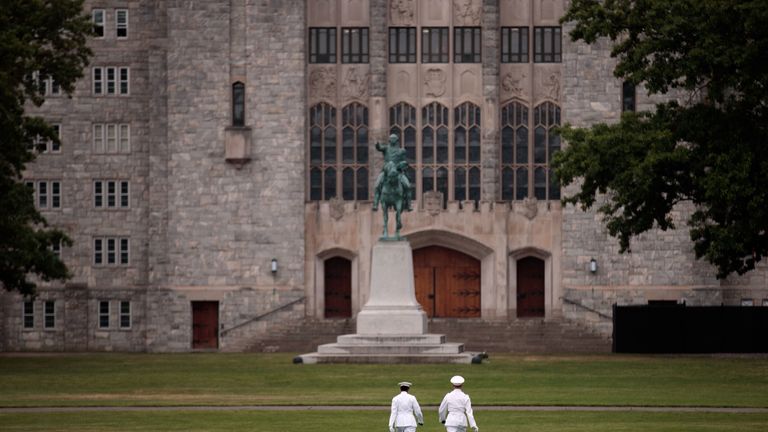Parents win right to use dead son’s sperm after death in skiing accident
The parents of a military cadet who died in a skiing accident can use his frozen sperm to produce a child, a judge has ruled.
West Point cadet Peter Zhu, from California, died after sustaining a skiing injury in February.
The 21-year-old’s parents got court permission to have his sperm retrieved and frozen at the same time as he underwent organ donation surgery, with the sperm preserved at a sperm bank.
Supreme Court Justice John Colangelo’s ruling gives Mr Zhu’s parents the ability to attempt conception with a surrogate mother.
Mr Zhu’s parents have not yet decided whether they will use their late son’s sperm.
“At this time, the court will place no restrictions on the use to which Peter’s parents may ultimately put their son’s sperm, including its potential use for procreative purposes,” Justice Colangelo wrote.
He said he found no restrictions in state or federal law, noting that few courts have addressed the issue of posthumous reproduction.
But the judge said that in those rare cases, the deceased’s intent was the deciding factor.
Mr Zhu left no written indication regarding the use of his genetic material after his death, Justice Colangelo said.
But he said that his parents testified that they had conversations with their son where he discussed his dream of having several children and the responsibility he felt to carry on his cultural and family legacy.
Mr Zhu’s military adviser at West Point in New York state also told the judge that he told him during mentoring sessions that he wanted to have children.
Monica Minzhi Yao, Mr Zhu’s mother, said the family wanted privacy and will not comment on the case.
“We are extremely devastated over this freak accident,” she said.
“Our pain is something that no words can describe.”
Justice Colangelo also noted in his ruling that some doctors may be reluctant to help the family because of ethical concerns.
The American Society for Reproductive Medicine issued ethical guidelines in 2018 regarding posthumous collection of reproductive tissue.
It said that it is justifiable if authorised in writing by the deceased. Otherwise, requests should only be considered from the surviving spouse or partner.
While court cases concerning posthumous reproduction are usually filed by surviving spouses and not parents, this case is not entirely without precedent.
Back in 2007, an Iowa court authorised the recovery of a man’s sperm by his parents to donate to his fiancee for procreative use.
Then, in 2009, a woman in Texas obtained permission from a judge to have her 21-year-old son’s sperm extracted after his death, with the aim of finding a surrogate mother to bear her a grandchild.
Source: Read Full Article



